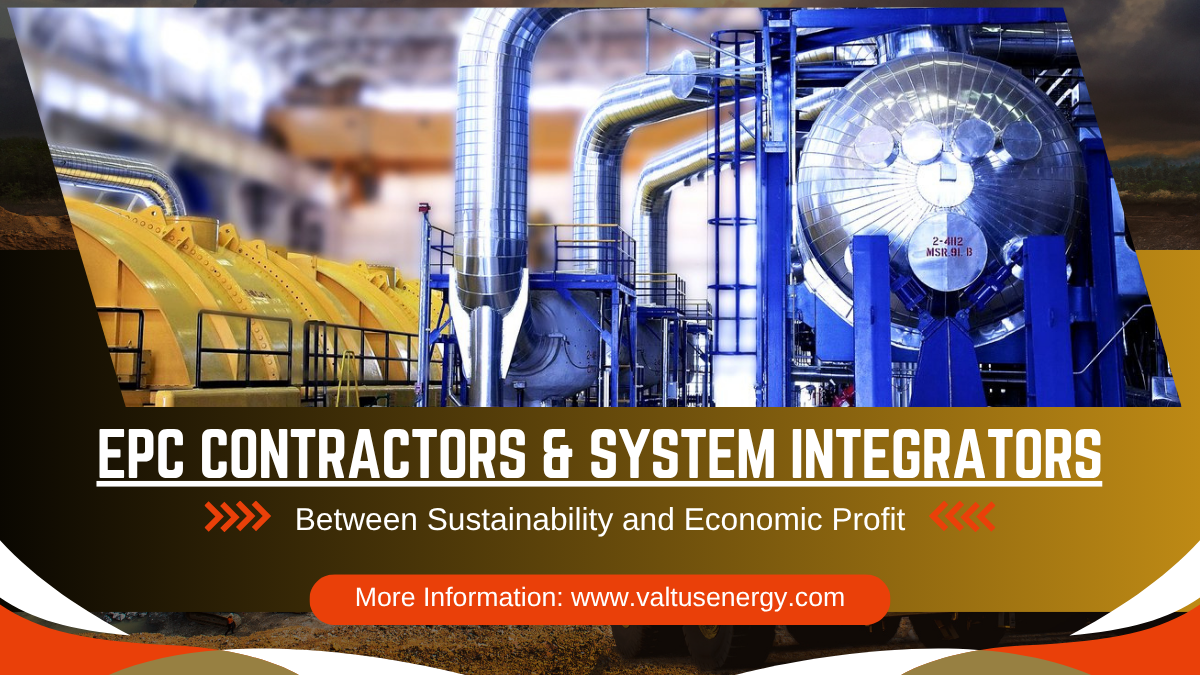EPC Contractors & System Integrators
EPC (Engineering, Procurement, and Construction) Contractors and System Integrators are critical players in delivering complex infrastructure and technology projects across industries. They ensure end-to-end project execution, seamless integration of systems, and operational readiness. Below is a breakdown of their roles, services, and value propositions:
1. Core Services of EPC Contractors
EPC Contractors manage the entire lifecycle of large-scale projects, from design to commissioning, under a single contractual framework. Key services include:
- Engineering & Design:
- Conducting feasibility studies, site assessments, and detailed engineering (e.g., structural, electrical, mechanical).
- Creating blueprints compliant with industry standards (e.g., ASME, ISO) and local regulations.
- Procurement:
- Sourcing materials, equipment, and technology at optimized costs while ensuring quality and supply chain resilience.
- Managing vendor relationships and logistics for timely delivery.
- Construction & Project Management:
- Overseeing site preparation, installation, and commissioning, adhering to safety protocols (e.g., OSHA compliance).
- Delivering projects on schedule and within budget, often using BIM (Building Information Modeling) for precision.
- Commissioning & Handover:
- Testing systems for performance, reliability, and compliance before operational handover.
- Providing training and documentation for end-users.
Example: EPC firms like Bechtel or Fluor execute turnkey projects such as solar farms, oil refineries, or data centers.
2. Services Offered by System Integrators
System Integrators specialize in unifying disparate subsystems (hardware, software, networks) into a cohesive, functional whole. Their services include:
- Integrated System Design:
- Developing architectures that combine IT, OT (Operational Technology), and IoT for smart factories, energy grids, or smart cities.
- Ensuring interoperability between legacy systems and new technologies.
- Automation & Control Systems:
- Implementing SCADA (Supervisory Control and Data Acquisition), PLCs (Programmable Logic Controllers), and DCS (Distributed Control Systems).
- Deploying solutions like Siemens’ MindSphere for industrial IoT analytics.
- Cybersecurity & Data Management:
- Securing integrated systems against threats (e.g., ransomware, unauthorized access) with protocols like IEC 62443.
- Centralizing data flows for real-time monitoring and decision-making.
- Testing & Optimization:
- Stress-testing systems under simulated conditions (e.g., peak load, cyberattacks).
- Fine-tuning performance for energy efficiency, uptime, or throughput.
Example: Companies like IBM or Honeywell integrate smart grid solutions, combining renewable energy sources with grid stability technologies.
3. Combined Benefits of EPC & System Integrators
- Turnkey Solutions: Single-point accountability for design, build, and integration reduces project complexity.
- Cost Control: Bulk procurement, optimized workflows, and risk-sharing minimize budget overruns.
- Risk Mitigation: Expertise in regulatory compliance (e.g., NEC, IEEE standards) and contingency planning.
- Future-Proofing: Scalable designs and modular systems allow for upgrades (e.g., adding battery storage to a solar plant).
4. Industry Applications
- Energy & Utilities:
- EPC firms build solar/wind farms, while System Integrators enable grid-balancing with battery storage and demand-response systems.
- Oil & Gas:
- EPCs construct pipelines and refineries; Integrators deploy leak-detection sensors and predictive maintenance platforms.
- Manufacturing:
- System Integrators unify robotics, ERP, and supply chain tools into Industry 4.0 ecosystems.
- Infrastructure:
- EPCs deliver highways or airports; Integrators implement smart lighting, traffic management, and security systems.
5. Emerging Trends
- Digital Twins: Virtual replicas of physical systems for real-time monitoring and predictive analytics (e.g., GE’s Digital Power Plant).
- Sustainability Integration: EPCs incorporate carbon capture or green materials; Integrators optimize energy use via AI-driven systems.
- Modular Construction: Prefabricated components (e.g., Tesla’s Solar Roof tiles) reduce on-site labor and timelines.
- Hybrid Project Models: Collaborations between EPCs and Integrators for projects like hydrogen hubs or microgrids.
Conclusion
EPC Contractors and System Integrators are indispensable for delivering modern, interconnected infrastructure and technology solutions. By merging engineering rigor with cutting-edge integration capabilities, they address challenges like sustainability, scalability, and cybersecurity. Their collaborative approach ensures projects are not only built efficiently but also optimized for long-term performance, making them vital partners in sectors ranging from energy to smart cities.
